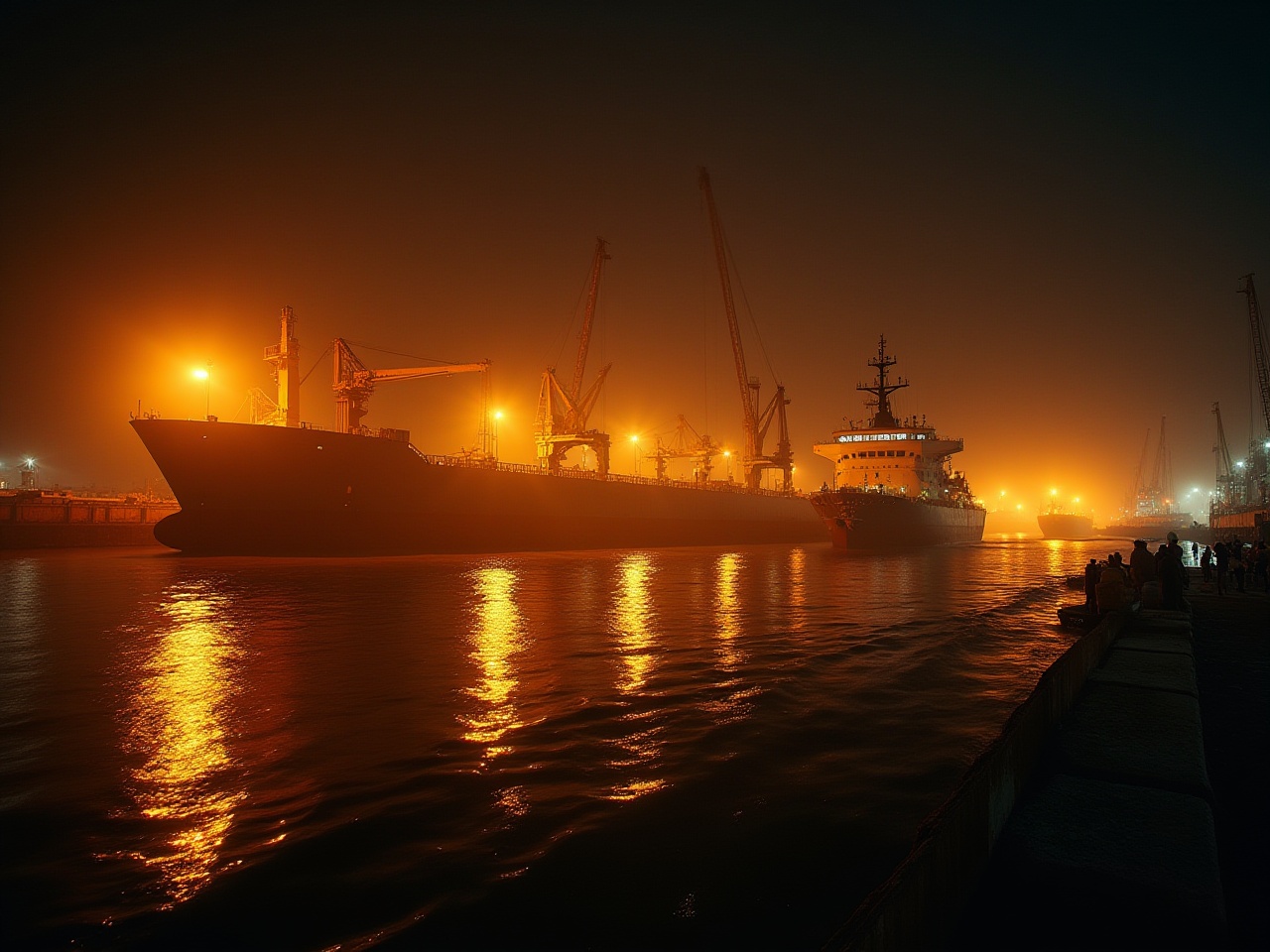Overview of the Shipping Sector in 2025
The shipping industry in Malaysia is currently maneuvering through a plethora of challenges in 2025. Industry participants are weighing the implications of tariffs, geo-political tensions, and stagnant freight rates while delivering vital logistics services. The current landscape calls for a calculated strategy to mitigate risks while ensuring operational efficacy.
Market Conditions and Challenges
In the first half of the year, the shipping sector displayed a cautious approach as discussions around tariffs remained prominent. The potential reciprocal tariff rate set to be enforced soon was anticipated to have limited immediate effects on industry players. However, the concern lingers regarding medium-term repercussions as these developments unfold.
Prominent players like Petroliam Nasional Bhd (Petronas) and Petroleum Sarawak Bhd (Petros) are engaged in drawn-out negotiations that have resulted in fluctuating demand within the oil support vessel market. Even with these impediments, the sector’s resilience shines through with ports outperforming expectations by reporting increased cargo volumes, a glimmer of hope amid the uncertainty.
Freight Rates and Domestic Activity
Freight rates have encountered a plateau, reflecting a broader trend of stagnation across shipping segments. Observations indicate that national maritime strategies must adapt swiftly to changing conditions to protect the industry. The demand dynamics in the domestic market remain relatively slow, largely because of the ongoing dialogues between key players.
Geopolitical Influences and Regional Operations
The geopolitical landscape continues to influence key maritime routes, generating ripple effects on logistics and transport operations. Of significance is the reliance on ASEAN vessels due to delays affecting major shipping routes like the Suez Canal and the Strait of Hormuz. Operators in Malaysia are increasingly focused on strengthening connections within the region, capitalizing on expanded trade opportunities with neighboring countries such as China and India.
Environmental Regulations and Compliance
As a notable subplot, decarbonization targets set forth by the International Maritime Organisation (IMO) demands attention. In light of Malaysia’s aging fleet, shipowners are under pressure to modernize operations while adhering to evolving regulations aimed at reducing emissions. The shift towards more sustainable practices is not just beneficial but necessary to stay relevant in a competitive global landscape.
Strengthening the ASEAN Framework
Transport Minister Anthony Loke Siew Fook voiced optimism regarding potential negotiations with global counterparts that could ease tariff burdens and elevate Malaysia’s maritime competitiveness. This outlook aligns with the ASEAN 2045 Vision, emphasizing the importance of effective logistics and distribution networks in fostering regional growth opportunities.
- Striving for regional connectivity among ASEAN members
- Investment in robust port infrastructure to support efficient logistics
- Incorporation of digital and physical infrastructure into maritime operations
- Encouragement of sustainability practices in shipping sectors
Shipping Services: The Path Forward
For the shipping industry to truly capitalize on the opportunities that lie ahead, it is essential that Malaysia embraces a collaborative approach that prioritizes efficiencies across the board. Stakeholders must remain aligned on core challenges: the escalating pressures of sustainability, the importance of competitive pricing, and adapting swiftly to geopolitical changes. Industry players must also consider leveraging platforms like GetTransport.com to enhance their logistics solutions, tapping into affordable and reliable cargo transportation options for home relocations or bulky goods.
The Role of Innovation
Innovation remains key to ensuring the logistics sector can absorb shocks effectively. An investment in technology, coupled with improved operations, will yield positive outcomes for stakeholders vying to enhance their logistics footprint. Efficient transport and logistics partnerships are vital for positioning Malaysia as a formidable player on the global stage.
Understanding the Importance of Infrastructure
The vision for ASEAN 2045 cannot materialize without adequate port infrastructure and freight services. Continuous improvements to capacity and service delivery will strengthen Malaysia’s role as a cargo hub. It’s important to recognize that while political dynamics may shift, the need for efficient logistics and intricate coordination will remain paramount.
Conclusion: Looking Ahead
As Malaysia’s shipping sector grapples with a host of uncertainties in 2025, it has also been granted a unique opportunity to adapt and evolve. Although external factors such as tariffs and geopolitical tensions may paint a challenging backdrop, a focus on operational efficiencies, coupled with strategic partnerships like those offered through GetTransport.com, can pave the way forward.
By fostering reliable transport solutions and leveraging the benefits of advanced logistics, stakeholders can maneuver through uncertainties seamlessly, aligning both their operational goals and strategic vision. For your future cargo transportation needs, don’t hesitate to explore how GetTransport.com can provide you with effective, affordable, and versatile logistics solutions. Start planning your next delivery and secure your cargo with GetTransport.com.

